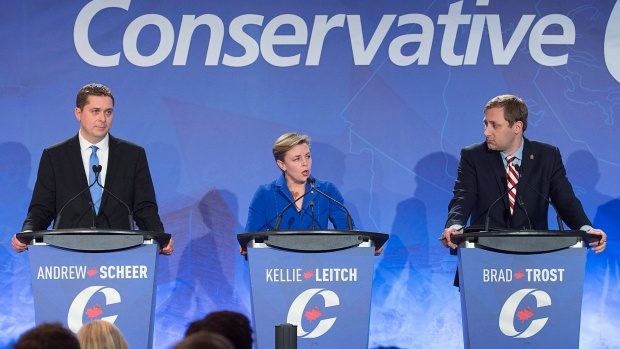The election of Donald Trump has preoccupied American commentators and journalists with deep and important questions about the intersections of culture, economics, politics, and indeed life itself. You can open any American magazine, newspaper, or website at the moment and read fascinating essays about the economic malaise of the rust belt, the breakdown of white working class families, the appalling arrogance of celebrity condescension, the dangerous groupthink of Ivy League schools and more, authored by both liberal and conservative alike. These are substantial pieces of writing, literary and well-researched, that reflect a desire to truly understand American society in all its vast complexities and challenges.
People don't write these kinds of things in this country. In place of substantial sociology we have lazy polemicists like Stephen Marche, Jon Kay, and John Ibbitson who blithely assert ideologically pleasing generalizations about Canada with scant evidence. This difference is a reflection of the widely different stories our elite tells about our respective nations.
The American commentator says "we are a flawed people defined by our flaws and our constant struggle to overcome them and live up to the unfulfilled ideals of our founding."
The Canadian commentator says, "we are a fundamentally wonderful people defined by our contrast with the awfulness of America. We must celebrate our superiority and dismiss our failings as laughably minor."
The Canadian narrative is like cotton candy; it's sweet and fluffy and gives you a satisfying rush. But it's unhealthy in the long term, since it's not made of substantial stuff and won't make you stronger.
The outcome of the Tory leadership race will decide whether this country will get an advocate for a Canadian counter-narrative. Though only an infinitesimally small section of the public — perhaps less than half of one percent — will wind up electing the next Tory boss, the result will play an outsized role in either reenforcing or threatening the story our powerful tell themselves, and by extension, us.
If a man like Michael Chong wins, the dominant narrative will be reenforced. Chong believes that in the last election the Tory party failed Canada by being too dark and divisive. His candidacy is based on the premise that Canadians crave leaders who celebrate conventional progressive totems like immigration, environmentalism, and the CBC, and rally around calm, progressive politicians like himself.
If a man like Andrew Scheer wins — an apple who has not fallen far from the Stephen Harper tree — the narrative will be reinforced to some extent as well. Prime Minister Harper was a radical man for his time, but his near-decade in government proved his flavour of conservatism, which, though principled, was vastly more cautious than it ever got credit for, could be compatible with the larger system. The elite never came up with a good theory of what Harper represented, beyond the fact that it was possible to elect an alternative to the Liberal Party from time to time. Because he so closely resembles Harper in tone, temperament, and agenda — indeed, as an understudy he is in some ways more Harperite than Harper himself, Scheer's leadership would be more a vindication of the past than an effort to define the future.
If Max Bernier, Kellie Leitch, or Kevin O'Leary wins, by contrast, the official narrative will be dealt a dramatic blow. These three candidacies are based on the premise that Canada's ruling elite and institutions are flawed and failing in ways conventional wisdom never dares acknowledge.
Leitch says our immigration system is reckless, and failing to protect Canadian values. Bernier says the Canadian state has grossly exceeded its mandate at the cost of personal freedom. O'Leary says our government is run by incompetent fools who know nothing about economics.
If these world views prove popular it will come as a sharp rebuke to commentators who insist Canada is a fantastically well-run, contently left-of-centre place where political disputes occur only at the mildest margins of a settled consensus.
Though I am furiously opposed to O'Leary, significantly suspicious of Bernier, and still skeptical of Leitch, any conservative who feels their lived experience as a Canadian does not match the idyllic picture spouted by the elite media and establishment politicians should support one of them.
Only their victories will ring the alarm that Canada is a more unsettled country than many would prefer to believe. Their leadership will force a critical dialogue that will hopefully come to resemble the useful fad of honest self-examination sweeping the United States.
Photo Credit: CBC News
Written by J.J. McCullough








